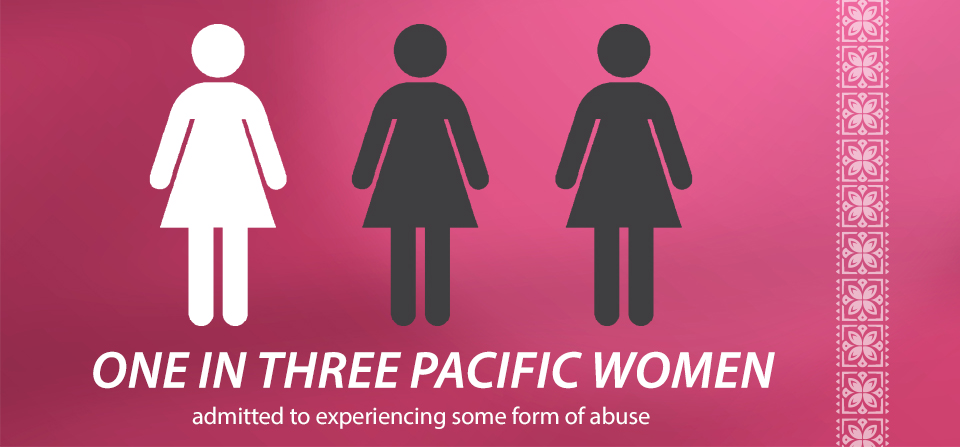One In Three Pacific Women …
Statistics for family violence against Pacific women in New Zealand show that one in three (thirty-two percent) of those surveyed admitted to experiencing some form of abuse.

This figure is in line with the wider population, where it is thought 33 percent of women living in Aotearoa have experienced physical or sexual intimate partner violence (IPV) in their lifetime.
When psychological abuse is added to the study the rate across the country increases to more than one in two (55 percent).
More frighteningly, it is feared that only about one-third of abuse is reported to authorities. Even with this low-reporting level it is still estimated that police attend a family violence episode somewhere in the country every four minutes.
The figures place New Zealand in an unenviable position topping the violence list in the 38-member OECD (Organisation for Economic Co-operation and Development) for family violence.
In light of the figures the Women’s Refuge has introduced a new way of assessing risk to women – picking up on all of the pieces of the risk puzzle and putting them together to reveal the wider picture.
Recently the Refuge is reported as saying the first five hundred of those risk assessments painted a “pretty terrifying” picture of family violence.
It tells a horror story of physical assault including strangulation, rape and being held hostage – and the realisation that it is likely to happen again.
Principal policy advisor at the Women’s Refuge, Natalie Thorburn, told Stuff that many people still believed family violence was caused by anger or poor impulse control and that women just needed to make the “right” choice and leave the relationship.
“While many women do make the decision to leave ... they have no control over whether the perpetrator stops abusing them,” she said.
But Ms Thorburn said family violence wasn’t just a social problem and everyone had a role to play.
She said it was a health problem, an economic problem, a workplace problem, a community problem, and a justice problem.
YOUR VIEWS MATTER
Te Aorerekura — the National Strategy to Eliminate Family Violence and Sexual Violence calls on government to identify service gaps across Aotearoa and to create a plan to address the family violence gaps and a plan to address the sexual violence gaps. Significant gaps have been identified in family violence and sexual violence (FVSV) services across Aotearoa New Zealand.
This means not everyone can access the support they need when they experience or use violence. Pacific peoples, Tangata whenua, disabled people, LGBTQIA+ communities, children and young people, ethnic communities, older people, and people who use violence are especially impacted by FVSV service gaps.
The government is requesting feedback from the community to help identify and close the service gaps. This presents an opportunity to ensure our voices are heard and enough information is provided to drive change. FEEDBACK DEADLINE – 26th May 2023
List of Family Violence and Sexual Violence Service Gaps
Feedback can be sent by filling out the short form on the Te Puna Aonui website CLICK HERE
or by EMAIL: TeAorerekura_Action29_30@msd.govt.nz
REACH OUT FOR HELP
Pasefika Proud and many others in our community take family violence and sexual violence very seriously. All forms of violence are crime.
You have the right to be safe. If you are a victim of violence or abuse, or there is someone that makes you fearful, threatens or harasses you, seek help as soon as possible.
If you’re feeling angry or worried you might hurt someone, call, or message one of the helplines below. Help is available.
You are not alone. Talk to someone you trust. The national helplines listed below have people ready to listen and help, whether you’re experiencing violence or abuse, worried you might hurt someone, or are concerned about others.
If you’re in danger, call the Police on 111.
If you can’t call for help, get out of the house and ask a neighbour or someone else to call 111.
If you are concerned that you or someone else will be harmed, phone the Police on 111. When it’s not safe to talk, press 55 if you require emergency assistance.
Call the helplines to find out how to help someone else if they are telling you they are being harmed or if you’re concerned. We have a collective responsibility to look out for and help victims, their families and whānau, and to ensure people stop using violence.
www.pasefikaproud.co.nz/get-help
CLICK HERE for Auckland Family Violence Service Providers
CLICK HERE for Family Violence Service Providers Outside Auckland
CLICK HERE for Ministry of Social Development Family Services Directory
To download a PDF file of the following links / resources PLEASE CLICK HERE